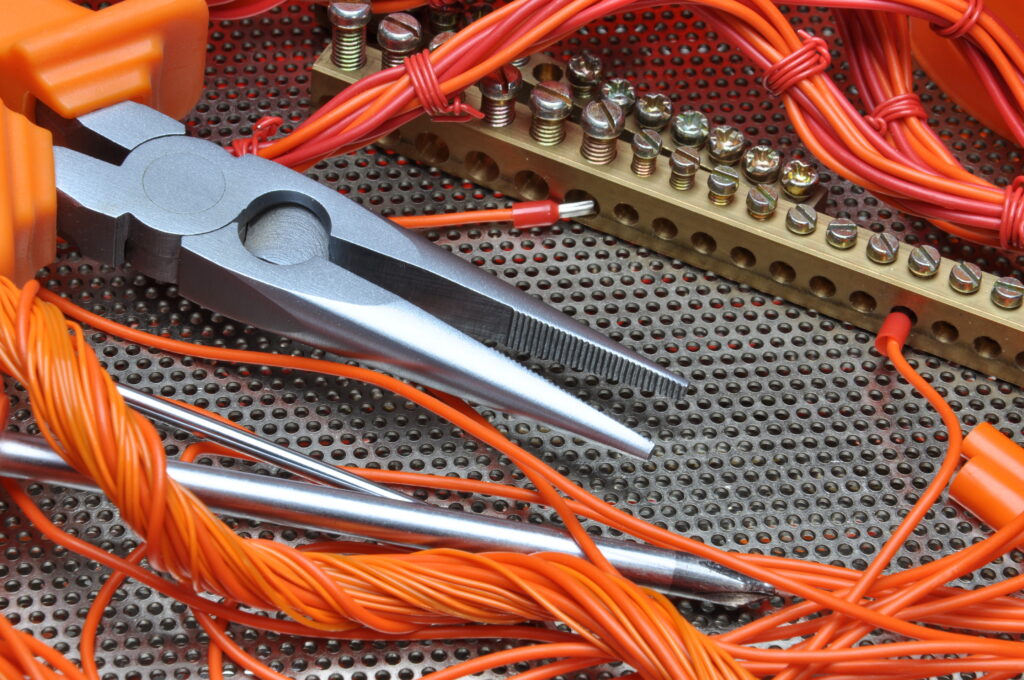
The Vital Role of Electrical Residential Services in Our Homes
This blog was brought to you by your Electricians San Antonio – Good Electric
The Vital Role of Electrical Residential Services in Our Homes
When we think about our homes, the comfort and safety they provide are paramount. Residential services play a crucial role in ensuring that our electrical systems function efficiently and reliably. We know that having a well-maintained electrical system not only enhances our daily living experience but also protects our loved ones from potential hazards. That’s why we’re committed to offering top-notch residential electrical services that cater to the unique needs of the greater San Antonio area, including New Braunfels. See more here about Residential Electricians San Antonio
Every home is different, and so are the electrical needs of each family. We understand that whether it’s installing new lighting fixtures, upgrading outlets, or addressing wiring issues, these services are essential for the functionality of our living spaces. Our team is dedicated to providing personalized solutions that not only meet the immediate needs of our clients but also contribute to the long-term reliability of their electrical systems. We take pride in the quality of our workmanship and the positive impact it has on the homes we serve.
Moreover, we recognize the importance of staying up-to-date with the latest electrical codes and safety standards. By prioritizing education and training, we ensure that our team can tackle any residential electrical project with confidence. Our commitment to excellence means we strive to create a safer, more efficient home environment for everyone. Together, we can make our homes more comfortable and secure, one electrical service at a time. More about Residential Electricians in San Antonio Here
How Can Residential Services Enhance Our Home Experience?
At Good Electric San Antonio, we know that residential electrical services can significantly enhance our home experience. With a reliable electrical system, we’re not only ensuring our safety but also improving our overall comfort and convenience. It’s amazing how much we take electricity for granted until something goes wrong. By investing in quality residential services, we can create a more efficient and enjoyable living environment for ourselves and our families.
We believe that there are three key benefits to utilizing residential services: First, we can achieve improved energy efficiency. This means lower utility bills and a reduced environmental footprint. Second, we can enhance the safety of our homes. Professional electrical services help us avoid potential hazards such as electrical fires or shocks. And third, we gain access to expert knowledge and support. With professionals helping us, we’re assured that any electrical issue will be diagnosed and resolved correctly, giving us peace of mind.
Ultimately, taking advantage of residential services is about making our homes more functional and enjoyable. Whether it’s upgrading outdated wiring, installing new lighting fixtures, or ensuring our electrical systems are up to code, each service contributes to a better living space. At Good Electric San Antonio, we’re passionate about helping our community transform their homes into safe, efficient, and welcoming environments.
More Great Blogs About Residential Electrical Issues Here
https://www.ckrfm.com/san-antonio-electricians-circuit-breaker-panels/
https://www.830wtru.com/san-antonio-electricians-circuit-brakers/
https://www.thepath.fm/residential-electricians-san-antonio-installations-repairs-upgrades/
https://www.accessnews.us/electricians-san-antonio-lighting-up-your-life/
https://www.beacon-observer.com/san-antonio-electricians-new-installations/
https://www.goffstown-tv.com/residential-electricians-troubleshooting/
https://www.bigoldies933.com/electricians-troubleshooting/
https://www.wjhjtv.com/code-compliance-electricians-san-antonio/
https://www.newsradio560.com/san-antonio-electricians-code-compliance/
https://www.deadairkpft.com/san-antonio-electricians-safety-is-always-first/
https://www.wyn107.com/electricians-san-antonio-safety-first/
https://www.wsmg103.com/electricians-play-an-important-role/
Power Consumption Meters: It’s Time to Conserve Energy
Power Consumption Meters: It’s Time to Conserve Energy
Have you been thinking about ways in which you can save on the energy bills that you pay? Do you want to reduce the amount of energy consumption at home? Do you want to become more eco-friendly? If your answer is yes, then it is high time that you install a power consumption meter in your home. In this way, you will be able to see how much energy you use per day and you can identify ways in which you can cut back on your energy bill at the same time be more conscious of your surroundings.
Now, if you are wondering how a power consumption meter can help you, continue reading. It would accurately tell you how much energy you have consumed. This device has been designed such that it can read signals from various appliances and then would tell you how much energy each of them would use. This is a crucial factor, to know how much power each of these devices utilizes. If you were to look at the amount of energy that is consumed by certain appliances, you would be astonished. The knowledge that you gain will help you cut back on power consumption and as a result, your energy bills will come down as well. This, in turn, will help the environment since energy won’t be going to waste unnecessarily. It is for this reason that each home should have a power consumption meter that would indicate to homeowners their energy usage habits. The more people who become aware of this the better, as it is the best way to conserve the environment.
Don’t have a power consumption meter installed yet? What are you waiting for? Call our company to get one installed right away. You can start saving money and energy at the same time!
Since power is knowledge, here is a list of devices that would bump up your energy consumption and your power bills:
Top Devices that May Be Spiking Your Energy Consumption:M
Electric furnace
Electric oven
Electric clothes dryer
Water heater
Electric heater
Window AC Unit
Air conditioning
Microwave
Dishwasher
Waterbed Heater
Coffee maker
Refrigerator
The appliances that have been listed use a lot of energy. When you use them all the time, it will certainly reflect on energy consumption and result in high energy bills. Now, that you are aware of how much power these appliances use, you will be in a position to use them with more care and caution. Additionally, when you install a power consumption meter, you will know exactly how much power you will be consuming. You can cut back on the use of these appliances. Take care of the fact that you don’t keep these appliances when they are not necessary.
What are you waiting for? Call our company to set up an appointment and install this device in your home.
This Blog was posted for you By Good Electric in San Antonio
Cosmetic Dentistry Builds Your Self Confidence
Cosmetic Dentistry Builds Your Self Confidence
We use cosmetic dentistry for children to boost their loved one’s self-image. If your child is concerned about the impact that their smile has on the world, please turn to our practice for assistance. We provide cosmetic dentistry for children. Please call us today for more information about all the cosmetic dentistry services we can offer! 
Cosmetic Dentistry for Children
We are ready to help boost your child’s self-image and smile with cosmetic dentistry for children’s procedures, and we will want to sit down with you and your child and discuss treatment plans. Our Pediatric Dentistry team needs to understand what your expectations and desires for cosmetic dentistry for children’s care are, and we’ll explain which techniques will be right for your child.
If your child is concerned about discoloration or stains on their enamel, ask us about teeth whitening for adolescents. We can use this method for patients who are preteens and teenagers. Teeth whitening is performed at home by wearing custom-fitting trays with prescription-strength whitening gel that we will provide. Regular use of the whitening trays can create long-lasting results in as little as two weeks. Please contact our office to schedule cosmetic dentistry for children’s appointments.
Children are very recreational and active. This can sometimes lead to dental accidents. If your child has injured a tooth, consult with our Pediatric Dentistry staff about cosmetic dentistry solutions tailored to your child.
For minor dental damage, our cosmetic dentistry staff can use cosmetic bonding and shaping. We will shade a tooth-colored composite to match your child’s smile and use it to fill in injured teeth. This will create the look of a new, undamaged tooth. This is the most simple and popular cosmetic dentistry for children method.
Please call us to schedule cosmetic dentistry for children’s visit.


